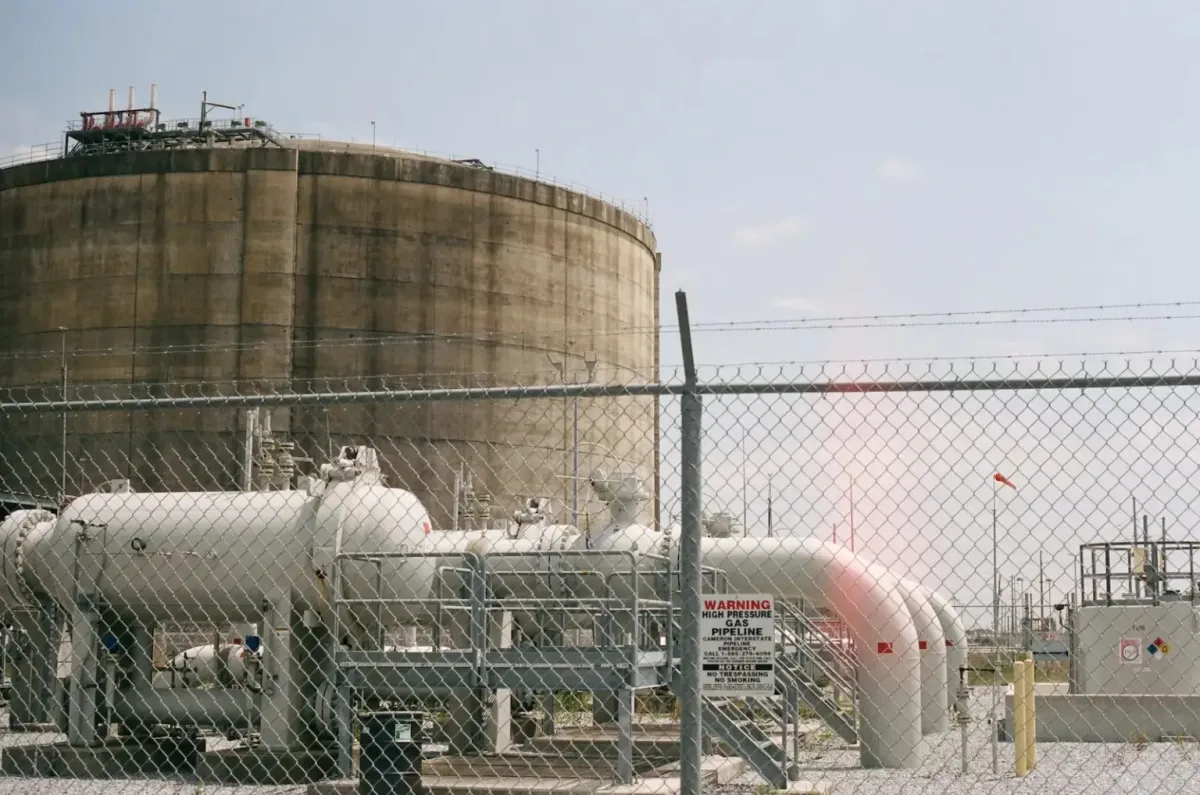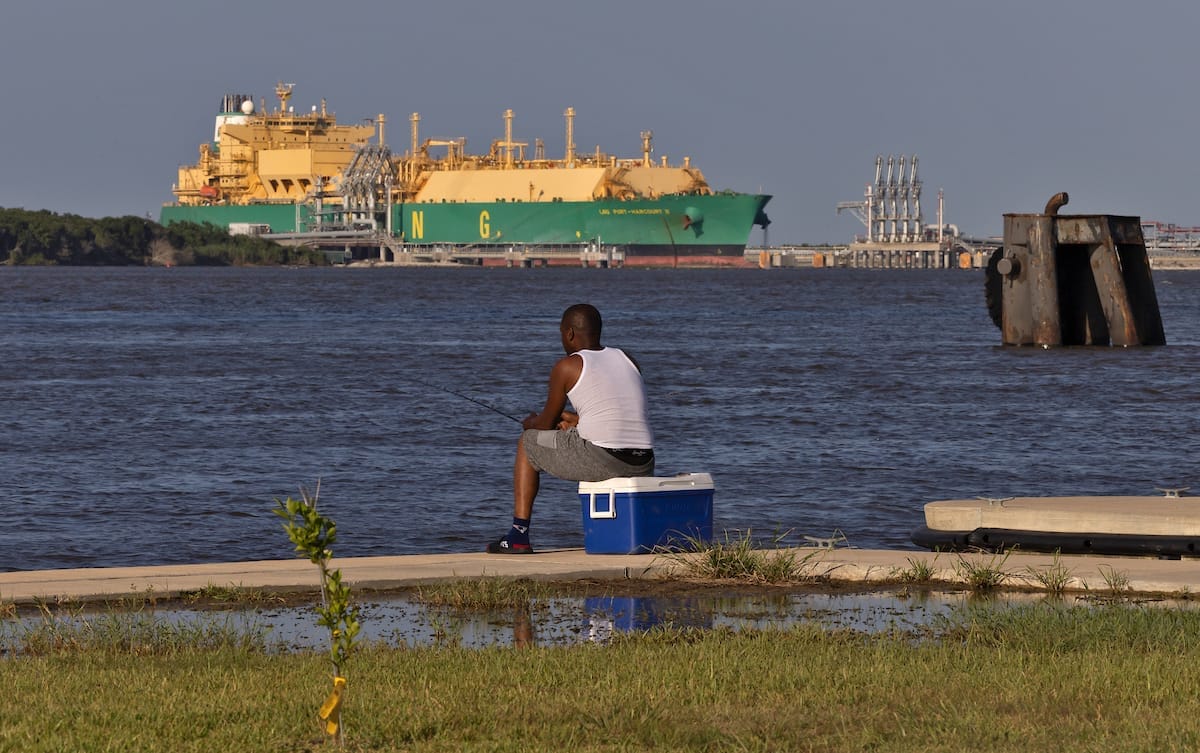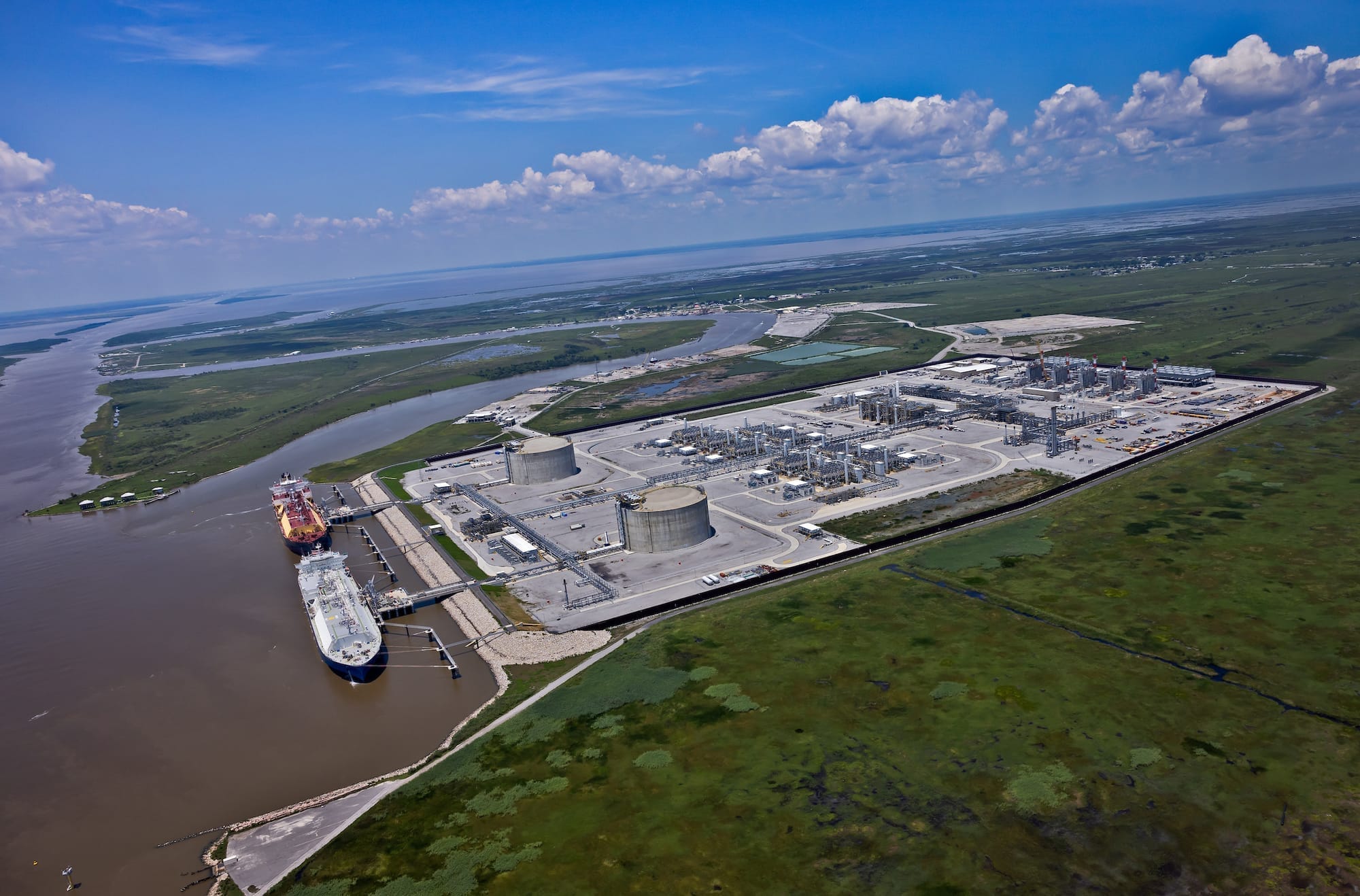Louisiana is the latest state to greenwash gas
A new state law that redefines natural gas as a 'green' energy source was adapted from language written by a right-wing think tank.

This story was originally published by Grist. Sign up for Grist's weekly newsletter here.
In Louisiana, natural gas — a planet-heating fossil fuel — is now, by law, considered “green energy” that can compete with solar and wind projects for clean energy funding. The law, signed by Republican Governor Jeff Landry last month, comes on the heels of similar bills passed in Ohio, Tennessee, and Indiana. What the bills have in common — besides an “updated definition” of a fossil fuel as a clean energy source — is language seemingly plucked straight from a right-wing think tank backed by oil and gas billionaire and activist Charles Koch.
Louisiana’s law was based on a template created by the American Legislative Exchange Council, or ALEC, a conservative organization that brings legislators and corporate lobbyists together to draft bills “dedicated to the principles of limited government, free markets and federalism.” The law maintains that Louisiana, in order to minimize its reliance on “foreign adversary nations” for energy, must ensure that natural gas and nuclear power are eligible for “all state programs that fund ‘green energy’ or ‘clean energy’ initiatives.”
But natural gas, also known as methane gas, is no more “natural” than any other fossil fuel. Its primary ingredient is methane, an intense heat-trapping gas that is far more potent than the carbon pollution produced by coal and oil, though it doesn’t stay in the atmosphere as long. It’s often marketed as a “bridge fuel” — a less harmful fossil fuel that can be used as communities transition away from coal — but studies have found that over the long term, the planet-warming impact of the natural gas industry may be equivalent to that of coal. That’s because gas pipelines often leak; according to an Environmental Defense Fund analysis, natural gas pipelines in the U.S. allow between 1.2 million and 2.6 million tons of methane to escape into the atmosphere each year.
Louisiana State Representative Jacob Landry first introduced a near-identical bill to the model posted on ALEC’s website and to the other bills that have passed in Ohio, Tennessee, and Indiana. (The Washington Post reported in 2023 that ALEC was involved in Ohio’s bill; ALEC denies involvement.) Landry, who represents a small district in the southern part of the state, is the recipient of significant fossil-fuel-industry funding — and co-owns two oil and gas consulting firms himself. During his campaign for the state Legislature, Landry received donations from at least 15 fossil-fuel-affiliated companies and PACs, including Exxon Mobil (which has also funded ALEC) and Phillips 66. Those donations alone totaled over $20,000.
Representative Landry did not respond to multiple requests for comment. ALEC did not get back to Grist in time for publication.

While Louisiana has one of the least reliable grids in the country, that lack of reliability is in large part due to the state’s reliance on natural gas, which provides most of its electricity, according to a 2025 report from the Louisiana Legislative Auditor’s Office.
“Best practices have found that gas plants are susceptible to large-scale failures during extreme weather,” the auditors wrote. “Diversifying the energy sources used for electricity generation is a priority.”
Bills that benefit both the fossil fuel industry and the individual lawmakers who introduce them aren’t exactly a new genre in Louisiana, said Laura Peterson, a senior analyst with the Union of Concerned Scientists. What’s less standard is that this one is dressed up in climate-friendly language.
“Louisiana is a classic example of a captured state,” Peterson said. “Their state economy is just so dependent on fossil fuels and petrochemicals.” (The amount of money the fossil fuel industry brings to Louisiana’s people, though, has been on the decline since the turn of the century.)
The state accounts for about 10 percent of the country’s natural gas production and holds about 6 percent of U.S. natural gas reserves. Natural gas is already used to generate about three-quarters of the state’s electricity, and building out more pipeline projects to carry liquefied natural gas, or LNG, won’t necessarily make electricity bills cheaper for residents, Peterson said.
“Building LNG infrastructure is not going to lower anyone’s energy prices in the short term,” since it takes many years to build a pipeline, Peterson said. “And there’s a lot of research that shows that overreliance on gas leaves power grids vulnerable to extreme weather, which Louisiana has a lot of.”
Jeffrey Clark, president of the Louisiana Advanced Power Alliance — an industry group representing both renewable and fossil fuel energy companies and investors — testified in opposition to the bill in early June.
“This legislation is being promoted as a solution to Louisiana’s reliability challenges. But with all due respect, it is a solution in search of a problem,” Clark said. “We support fossil fuels as a key part of the nation’s energy mix, but codifying them as the only acceptable path forward dismisses a growing body of evidence that grid reliability depends on resource diversity.”
Fossil fuel advocacy groups lauded the move. Larry Behrens of the nonprofit Power the Future wrote that the legislation turns Louisiana into an “energy sanctuary state,” taking “a direct shot at the China-backed solar and wind lobby.”

Reclassifying natural gas as “green” energy means that proposed natural gas pipelines may be able to access funding that would otherwise have gone to new solar or wind projects; it may also make natural gas companies more appealing to environmentally conscious investors. ALEC, the right-wing think tank that provided the template language for Landry’s bill, noted in a press release that resolutions like this could pave the way for more AI data centers in the state, too. “Redefining ‘green energy’ allows utilities to continue using natural gas while fulfilling state ‘green energy’ or ‘clean energy’ initiatives,” ALEC staffer Mark Lucas wrote.
Over the years, ALEC has succeeded in getting laws that benefit fossil fuel companies passed across the country. Recently the group, which was founded in the 1970s, has helped draft legislation criminalizing grassroots protest against pipelines, gas terminals, and other fossil fuel infrastructure — versions of that bill had passed in 17 states by 2022. They have also drafted bills aiming to punish economic boycotts of the oil industry. And there are currently 114 different model policies related to energy on their website, 23 of which specifically address “green energy.”
“It’s classic greenwashing, right?” said Peterson of the new Louisiana law — using the language of sustainability to describe an activity that’s actually not sustainable at all. “The intent of these laws is to allow the buildout of fossil fuel infrastructure, which will perpetuate the use of fossil fuels for decades to come.”
This article originally appeared in Grist at https://grist.org/language/louisiana-latest-state-greenwash-gas-law/.
Grist is a nonprofit, independent media organization dedicated to telling stories of climate solutions and a just future. Learn more at Grist.org
